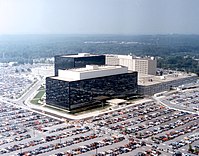 Regardless of why polio is no longer seen as a major threat, the history of the polio vaccines is one of horrific consequences that few Americans know anything about.
Regardless of why polio is no longer seen as a major threat, the history of the polio vaccines is one of horrific consequences that few Americans know anything about.
At the 11th hour, a bacteriologist at NIH was told to safety-test the new polio vaccine. Her name was Bernice Eddy. When she injected the vaccine into her monkeys, they fell paralyzed in their cages. Eddy realized that the virus in the vaccine was not dead as promised, but still alive and ready to multiply. It was time to sound the alarm. She sent pictures of the paralyzed monkeys to NIH's management and warned them of the upcoming tragedy. A debate erupted in the corridors of power. Was the polio vaccine really ready? Should the mass inoculation proceed on schedule?





 Fox News Channel's top Washington editor ordered the network's reporters to couple any mention of global climate change with skepticism about the data underlying such a scientific conclusion, according to an e-mail released by a liberal media-watchdog group Wednesday.
Fox News Channel's top Washington editor ordered the network's reporters to couple any mention of global climate change with skepticism about the data underlying such a scientific conclusion, according to an e-mail released by a liberal media-watchdog group Wednesday. Cutting global greenhouse emissions might yet save the polar bear and its Arctic habitat, according to scientists in the US. It has been suggested that emissions of greenhouse gases have already put the Arctic ice cap and the polar bear on an irreversible path towards extinction.
Cutting global greenhouse emissions might yet save the polar bear and its Arctic habitat, according to scientists in the US. It has been suggested that emissions of greenhouse gases have already put the Arctic ice cap and the polar bear on an irreversible path towards extinction. An Army doctor who disobeyed orders to deploy to Afghanistan because he questioned President Barack Obama's eligibility to be commander in chief told a jury Wednesday he was wrong to do so and would now deploy if he could.
An Army doctor who disobeyed orders to deploy to Afghanistan because he questioned President Barack Obama's eligibility to be commander in chief told a jury Wednesday he was wrong to do so and would now deploy if he could. The US is suing BP and eight other firms for allegedly violating federal safety regulations in connection with the Gulf of Mexico oil spill. The lawsuit asks that they be held liable without limitation for all clean-up and damage costs.
The US is suing BP and eight other firms for allegedly violating federal safety regulations in connection with the Gulf of Mexico oil spill. The lawsuit asks that they be held liable without limitation for all clean-up and damage costs. By now all reasonable people in the world know that the Bush administration (with almost no opposition from Democrats) used 9/11 as a pretense to invade and occupy an oil-rich Middle Eastern country that posed no threat to America. Even President Bush has admitted in a press conference that there were never any WMDs in Iraq. But the war has been very profitable for some, as war always is, as it has drained American taxpayers of hundreds of billions of dollars. It has also ballooned the warfare state, the military-industrial complex, and the conservative anti-civil liberties lobby. (On the day of this writing the talking heads on the FOX War Channel were all but dancing in the streets of Manhattan in celebration of a bill passed by the U.S. Senate the previous evening that would allow for the suspension of habeas corpus. Can mass burn-the-Constitution rallies, perhaps organized by Rush Limbaugh and Sean Hannity, be far behind?)
By now all reasonable people in the world know that the Bush administration (with almost no opposition from Democrats) used 9/11 as a pretense to invade and occupy an oil-rich Middle Eastern country that posed no threat to America. Even President Bush has admitted in a press conference that there were never any WMDs in Iraq. But the war has been very profitable for some, as war always is, as it has drained American taxpayers of hundreds of billions of dollars. It has also ballooned the warfare state, the military-industrial complex, and the conservative anti-civil liberties lobby. (On the day of this writing the talking heads on the FOX War Channel were all but dancing in the streets of Manhattan in celebration of a bill passed by the U.S. Senate the previous evening that would allow for the suspension of habeas corpus. Can mass burn-the-Constitution rallies, perhaps organized by Rush Limbaugh and Sean Hannity, be far behind?) Take a look at the short CNN video interview below with 27-year CIA analyst Ray McGovern on WikiLeaks and its founder Julian Assange. It's astonishing and disturbingly telling.
Take a look at the short CNN video interview below with 27-year CIA analyst Ray McGovern on WikiLeaks and its founder Julian Assange. It's astonishing and disturbingly telling. Barack Obama is expected to claim solid progress in the war in Afghanistan tonight. The review will contradict far gloomier findings by his own intelligence agencies that the war cannot be won while Pakistan refuses to close militant safe havens.
Barack Obama is expected to claim solid progress in the war in Afghanistan tonight. The review will contradict far gloomier findings by his own intelligence agencies that the war cannot be won while Pakistan refuses to close militant safe havens. The U.S. Air Force is blocking its personnel from using work computers to view the websites of the New York Times and other major publications that have posted classified diplomatic cables, people familiar with the matter said.
The U.S. Air Force is blocking its personnel from using work computers to view the websites of the New York Times and other major publications that have posted classified diplomatic cables, people familiar with the matter said.






























